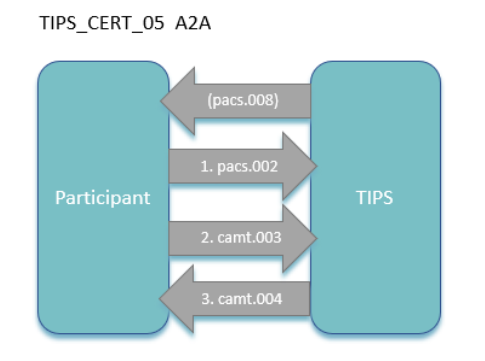Are you interested in becoming a server or bartender? If you’re planning to work in a business that sells alcohol, then you need to complete a TIPS training course.
The employees who take the course are better equipped to recognize the signs of intoxication and handle alcohol-related events favorably. They can more easily create a friendly, safe, and responsible environment.
Of course, you may have questions about how to get TIPS certified, and we are here to answer them. Let’s learn more about the courses you need to take to be able to serve alcohol in US establishments.
What is TIPS certification?
TIPS is an abbreviation for Training for Intervention ProcedureS. When you have this certification, it means you have successfully completed a course and are educated in alcohol service responsibility.
TIPS is widely recognized in the US and other countries as a way to show competency in responsible alcohol service. The TIPS program gives bartenders, servers, and managers the proper skills and confidence to prevent customers from being intoxicated. TIPS courses teach people about federal and state alcohol laws, how to identify fake IDs, and how to deal with more alcohol-related incidents.
TIPS acts as a skill-based alcohol training and certification program that aims to prevent intoxication, drunk driving, and underage drinking by training “people skills.” At the end of the training period, students must take a test and pass an exam to receive a certification card.
Who needs TIPS training?
This training is addressed to anyone who serves alcohol in licensed establishments. Most bars, stores, and insurance businesses require it. Here are the most likely professions that require TIPS certification:
- Bartenders
- Servers
- Barbacks
- Hosts and hostesses
- Managers
- Clerks and managers of liquor, grocery, and convenience stores.
Basically, if you work in a place that sells alcohol legally, you should have this certification.
Is TIPS certification mandatory?
This depends on location. Some US states require TIPS training and certification, while others do not. In states where the training is not mandatory, your workplace may demand that you complete the course to learn how to follow alcohol laws in that state.
TIPS alcoholic beverage training is mandatory in most states and should be completed within 30 days of employment. This means that you are protected in the event of an alcohol-related incident. Plus, more respectable establishments may hire you faster since you are already certified.
What type of TIPS certification do I need?
There are various types of TIPS certification courses available. Let’s see what the most popular types are:
- On premise – That means the course is available for those who serve alcohol meant to be consumed on the premises. Locations include restaurants, wineries, bars, hotels, casinos, and other businesses.
- Off-premise and delivery – This type of TIPS certification is addressed to those selling alcohol that will be consumed somewhere else. Typical locations include convenience stores, liquor stores, and grocery stores. It’s also addressed to those who work for delivery or online ordering services that sell alcohol or cocktails to go.
- Concessions – The concessions alcohol training program is designed for the people who sell or serve alcohol in concession settings. That means locations such as convention centers, sports stadiums, arenas, concert halls, festivals, and fundraisers.
- Gaming – This course is specific to those who serve or sell alcohol in settings such as gambling and gaming environments. It’s destined for valets, card dealers, security guards, floor managers, bartenders, cocktail servers, and workers in casinos.
The specific topics covered in a TIPS certification course depend on the state and type of program you enroll in. Most programs include laws and guidelines related to alcohol, how it affects the body, and recognizing an intoxicated customer.
The course doesn’t require much time to complete. Most online courses take around three hours. Users can log out and back in whenever they want. The course resumes where the user logged out. Keep in mind that the final test must be completed in one uninterrupted sitting to get the certification.
Topics covered
The training covers certain key areas:
Alcohol-related laws and regulations – Students learn about different laws and regulations, such as hours of service and the legal drinking age.
Recognizing signs of intoxication – It implies learning to spot the signs of inebriation.
Handling difficult situations – Learning how to deal with inebriated patrons, preventing underage drinking, and dealing with aggressive behavior.
Responsible alcohol service strategies – Teaching how to pace alcohol consumption, using communication skills to manage tough situations, and pivoting towards non-alcoholic drinks.
Prevent drunk driving – Education on the risks of drunk driving and strategies to help prevent clients from doing it.
Does the certification expire?
Yes. Unfortunately, TIPS certification has an expiration date. After it passes, you must retake the course to renew your certification.
The good news is the certification lasts for three years. Depending on state and jurisdictional requirements, servers and sellers should receive the training every two, three, or four years. Of course, that includes passing the course exam every time.
How to get enrolled and get TIPS certified
Getting TIPS certified is simple. All you have to do is enroll in a training course that interests you and helps you do your job well. Then, you complete the course and pass the certification exam. The final step is to receive the certification in hand if you followed a physical course or download and print it if you went for an online course.
Conclusion
No matter what type of TIPS certification you need, there are in-person and online options to choose from. And the costs vary from one certified trainer to another.
Having this certification allows you to get hired in any establishment that sells or serves alcoholic beverages. It protects you and the employer against liability issues and makes you a more desirable candidate for the job!

